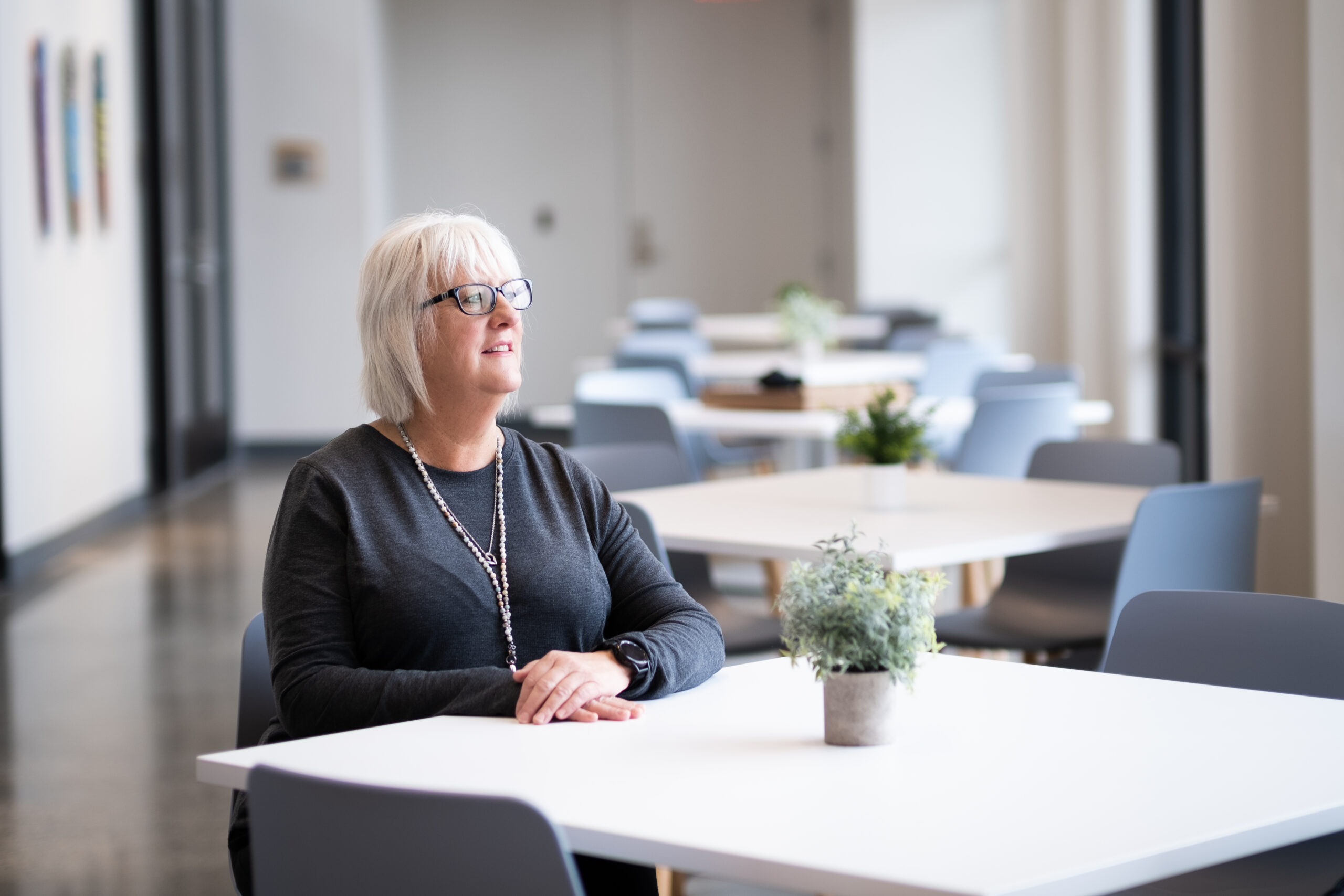Melba Marsh is celebrating ten years of sobriety. Now, she’s helping others on their road to recovery as a Community Health Center of Southeast Kansas Peer Support Specialist.
As a peer support specialist (PSS) Melba is a member of CHC/SEK’s Addiction Treatment Services team and provides support to patients participating in the program. The PSS serves as a role model to peers exhibiting competency in personal recovery and use of coping skills and serves as a consumer advocate.
Melba shares her story with almost every patient she meets as a peer support specialist.
“You can sometimes just see the relief come over their face because we don’t want to be judged at all,” Melba says. “We’re not bad people. We’re people who have made bad decisions in our lives, and the drugs and alcohol have contributed to those decisions that were made.”
Melba’s Story

When Melba was in her early twenties she enjoyed hanging out with friends and drinking. Little by little, she began to drink more, especially after challenging life events. Drinking made her feel better. Before she knew it, she needed alcohol daily.
As Melba’s alcohol addiction progressed, her relationship with her son and other family members became strained. The relationship with her husband at the time had failed.
“Marriage doesn’t work when lots of alcohol is involved,” Melba says.
One evening, she went out with her best friend — their usual fun, drinks included. That same evening, a poor decision was made that included driving while intoxicated. This ultimately resulted in the loss of her friend.
“You’d think losing my friend would stop me from drinking, but no, I just drank more,” Melba says.
Shortly after, she was jailed and was charged with involuntary manslaughter. That’s when her recovery began.
Helping Others
“This is not like a job for me,” Melba said about being a peer support specialist. “You know when they say, ‘If you have a job you like, you never work another day in your life?’ That’s where I’m at. People helped me get to where I am, and now I can help others.”
Melba says she is passionate about being a peer support specialist because she likes to “plant the seeds” that could lead to recovery. “I can plant the seed, but I can’t water it for them.”
Melba said she loves talking to patients. They discuss what’s going on in their lives and what she can do to help.
“I tell them what I did to get where I’m at,” she said, adding that it includes diligently going to Alcoholics Anonymous meetings and keeping family and friends at the forefront of her mind. “It might encourage them to make better decisions.”
Melba reminds people that recovery “sometimes takes one minute at a time, and sometimes it’s one second at a time to get through the day not wanting to drink.” Ups and downs happen, which she calls “storms.” She encourages them to keep trying. “We want to get people back to a good spot, and that’s what were here to do.”
“I am able to provide individual sessions and attend counseling sessions with them and their counselor if needed to help them communicate if they are struggling to do so,” Melba says, adding that people are often nervous and having someone they can relate to, eases their mind.
Since being in recovery, Melba has been able to repair all relationships with her family and has a significant other who shares his family with her. Melba hopes to continue providing support to those who are currently struggling with addiction.
“I had worked as the Director of Behavioral Health for about 36 hours when Melba became my first hire. I couldn’t be happier with the outcome,” says Eric Thomason, PMHNP, Vice President of Behavioral Health. “Not only does Melba do a tremendous job contributing to our treatment team as a Certified Peer Mentor, but each day she does this work, she reinforces to me that you can fight against addiction and win. There is hope, and mine comes in the form of Melba Marsh.”
How do I get addiction treatment?
CHC/SEK has Addiction Treatment Services in Pittsburg, Fort Scott, Iola, and Columbus. More locations are in our future.
• You can call us at 620-231-9873 and ask for a member of our ATS Team.
• Or make an appointment with your health care provider
Click here for more information on Addiction Treatment Services at CHC/SEK


